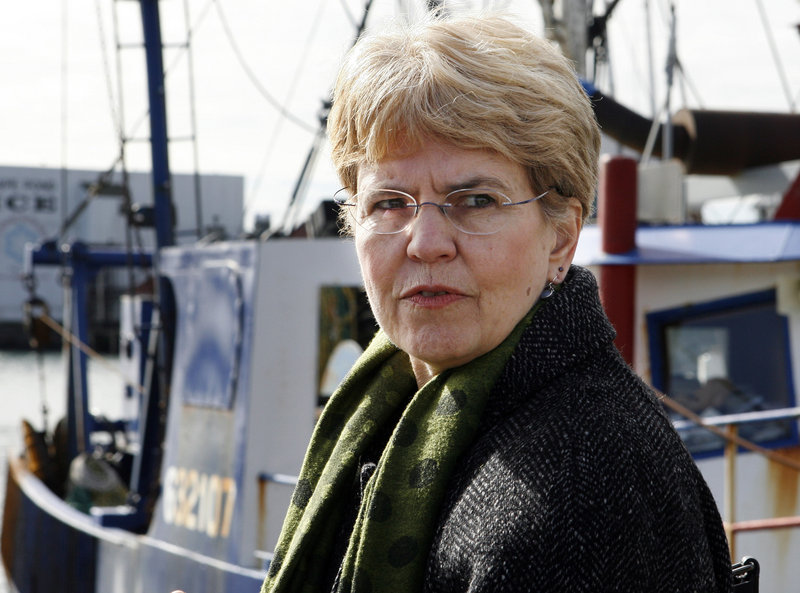BOSTON – The woman who oversaw the struggling New England fishing industry’s tumultuous transition to a new fishery management system resigned Wednesday.
Jane Lubchenco announced she was stepping down as administrator of the National Oceanic and Atmospheric Administration, effective in February. The former college professor will return to her West Coast home and academia.
In New England, assessments show key stocks in poor health as fishermen face drastic catch reductions in 2013. In September, the U.S. Commerce Department declared a national fishery disaster in New England, amid fears the historic industry is nearing collapse.
In a letter addressed to her “NOAA Family,” Lubchenco — whose broad duties include overseeing fisheries nationwide — listed 20 agency accomplishments since her 2009 appointment. First was, “ending over-fishing, rebuilding depleted stocks, and returning fishing to profitability.”
But U.S. Sen. Scott Brown said Lubchenco’s tenure has been disastrous for New England fishermen and called on the acting head of the U.S. Commerce Department to appoint someone to end “this sad chapter of mismanagement.”
“Administrator Lubchenco has implemented job-killing policies that have decimated the Massachusetts fishing fleet,” Brown said.
The new management system, enacted in May 2010, gives fishermen individual shares of the catch for each species, which they pool and manage in groups called sectors.
The system aims to give fishermen liberty to fish when the market and conditions are good, and free them from being tied to the ever-dwindling number of allowed fishing days that were the focus of the old system. It had support from industry members sick of the failures of the old system and eager for the new flexibility promised. It pleased environmentalists because it established enforceable catch limits to prevent overfishing.
Priscilla Brooks, of the Conservation Law Foundation, praised Lubchenco on Wednesday, including her focus on overfishing. She said Lubchenco’s “attention to the most pressing issues of the ‘wet side’ of NOAA’s sprawling mission should be appreciated by all who use, enjoy and benefit from our oceans and coasts.”
But critics said New England’s transferrable catch shares would accelerate the consolidation of the historic industry, as well-funded fishing interests buy out fishermen whose allotted shares of the catch were too small to support their businesses. A display at a 2009 rally against the change depicted two fishermen being hanged by a figure of Lubchenco.
As the industry continued to struggle, lawmakers soured on Lubchenco. U.S. Rep. Barney Frank said Lubchenco was “hostile” to fishing interests, and Brown called in October 2011 for President Obama to fire her. U.S. Rep. John Tierney called on her to resign.
Under the new system, the industry has reported improved profitability, but also a continuing trend of more catch shifting into fewer hands. Meanwhile, the recovery of key fish stocks, such as Gulf of Maine cod and Georges Bank yellowtail flounder, is so weak that the huge 2013 cuts are legally mandated.
In response to the crisis, Lubchenco’s top fishery manager, Sam Rauch, has visited New England numerous times to find ways to help the industry survive.
Send questions/comments to the editors.



Success. Please wait for the page to reload. If the page does not reload within 5 seconds, please refresh the page.
Enter your email and password to access comments.
Hi, to comment on stories you must . This profile is in addition to your subscription and website login.
Already have a commenting profile? .
Invalid username/password.
Please check your email to confirm and complete your registration.
Only subscribers are eligible to post comments. Please subscribe or login first for digital access. Here’s why.
Use the form below to reset your password. When you've submitted your account email, we will send an email with a reset code.